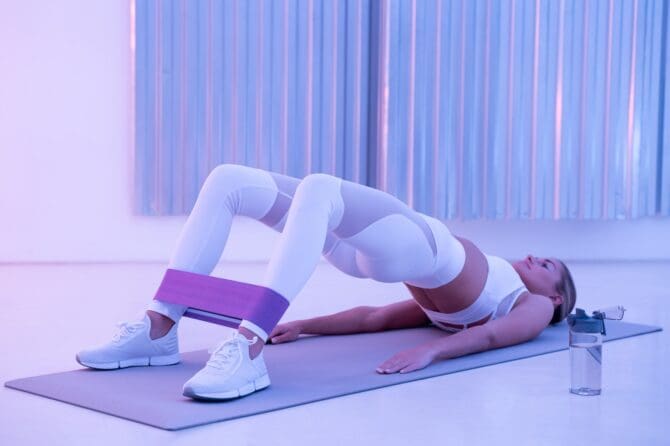Tips and advice on how to prevent stretch marks during pregnancy, ensuring a healthy and smooth skin throughout this special time.
Pregnancy is a beautiful and transformative journey for women, but it can also bring about some physical changes, including the appearance of stretch marks. These marks occur when the skin stretches rapidly, causing the collagen and elastin fibers to break. While they are a natural part of pregnancy, many women seek ways to prevent or minimize their occurrence.
Fortunately, there are several dos and don’ts that can help you maintain a healthy and smooth skin throughout this special time. By following these tips, you can reduce the risk of developing stretch marks and feel confident in your skin:
- Eat a Balanced Diet: Maintaining a healthy diet rich in vitamins and minerals can help nourish the skin and improve its elasticity, reducing the risk of stretch marks.
- Stay Hydrated: Drinking plenty of water keeps the skin hydrated and supple, minimizing the chances of developing stretch marks during pregnancy.
- Moisturize Regularly: Applying a moisturizer or oil to the skin can help keep it moisturized and improve its elasticity, reducing the likelihood of stretch marks.
- Avoid Harsh Chemicals: Using gentle and natural skincare products can prevent skin irritation and minimize the risk of stretch marks during pregnancy.
- Consider Massage: Regularly massaging the skin with oils or creams can improve blood circulation and promote skin elasticity, reducing the appearance of stretch marks.
- Exercise Safely: Engaging in safe and appropriate exercises during pregnancy can improve blood flow and strengthen the skin, reducing the likelihood of stretch marks.
- Monitor Weight Gain: Maintaining a healthy weight gain during pregnancy can help minimize the stretching of the skin and reduce the risk of stretch marks.
- Consult with a Dermatologist: Seeking advice from a dermatologist can provide personalized recommendations and treatments to prevent and manage stretch marks during pregnancy.
By following these dos and don’ts, you can take proactive steps to prevent or minimize the appearance of stretch marks during pregnancy. Remember to embrace the changes your body is going through and prioritize self-care during this special time. Your skin is beautiful, and with the right care, it can remain healthy and smooth throughout your pregnancy journey.
Eat a Balanced Diet
Eating a balanced diet during pregnancy is not only important for the overall health of the mother and baby, but it can also play a crucial role in preventing stretch marks. By consuming a variety of foods that are rich in vitamins and minerals, you can nourish your skin from the inside out and improve its elasticity.
Include plenty of fruits and vegetables in your diet, as they are packed with essential nutrients and antioxidants that promote healthy skin. Foods like oranges, strawberries, spinach, and carrots are particularly beneficial as they are high in vitamins C and E, which are known to support collagen production and improve skin elasticity.
Incorporating foods that are rich in omega-3 fatty acids, such as salmon, walnuts, and flaxseeds, can also be beneficial for preventing stretch marks. Omega-3 fatty acids help to maintain the skin’s moisture and elasticity, reducing the likelihood of stretch marks.
It’s also important to stay hydrated by drinking plenty of water throughout the day. Water helps to keep the skin hydrated and supple, which can minimize the chances of developing stretch marks. Aim to drink at least 8 glasses of water daily and consider incorporating hydrating foods, such as cucumbers and watermelon, into your diet.
Additionally, including foods that are rich in zinc, such as lean meats, nuts, and whole grains, can support the production of collagen and elastin in the skin, further improving its elasticity. Zinc is also known to promote wound healing, which can be beneficial in preventing and reducing the appearance of stretch marks.
In summary, maintaining a balanced diet that is rich in vitamins, minerals, and essential nutrients can help nourish your skin and improve its elasticity, reducing the risk of stretch marks during pregnancy. By incorporating a variety of fruits, vegetables, omega-3 fatty acids, and zinc-rich foods into your meals, you can support the health and appearance of your skin throughout this special time.
Stay Hydrated
Staying hydrated is crucial for maintaining healthy and supple skin during pregnancy. Drinking plenty of water throughout the day helps to keep the skin hydrated from within, reducing the chances of developing stretch marks. Water is essential for maintaining the elasticity of the skin, which is important in preventing the formation of stretch marks.
In addition to water, consuming hydrating foods such as fruits and vegetables can also contribute to keeping the skin moisturized. These foods are rich in water content and provide essential vitamins and minerals that nourish the skin. Including foods like watermelon, cucumber, and oranges in your diet can help maintain optimal hydration levels and promote healthy skin.
It is recommended to drink at least eight glasses of water per day to stay adequately hydrated. This not only benefits the skin but also supports overall health and well-being during pregnancy. Hydrated skin is more elastic and less prone to developing stretch marks, ensuring a smoother and healthier appearance.
Moisturize Regularly
Moisturizing regularly is a key step in preventing stretch marks during pregnancy. By applying a moisturizer or oil to the skin, you can keep it hydrated and improve its elasticity, which in turn reduces the likelihood of developing stretch marks.
When choosing a moisturizer or oil, opt for products specifically designed for pregnant women, as they are formulated to provide the necessary hydration and nourishment without any harmful chemicals. Look for natural ingredients such as shea butter, cocoa butter, or almond oil, which are known for their moisturizing properties.
To make the most of your moisturizing routine, apply the product to your skin after showering or bathing. This helps to lock in moisture and keep your skin hydrated throughout the day. Gently massage the moisturizer or oil onto your belly, hips, breasts, and any other areas prone to stretching.
In addition to moisturizing, it’s important to drink plenty of water to keep your skin hydrated from within. Hydration plays a crucial role in maintaining the elasticity of your skin, making it less susceptible to stretch marks. Aim to drink at least 8 glasses of water per day and consider incorporating hydrating foods into your diet, such as watermelon, cucumbers, and citrus fruits.
Remember, consistency is key when it comes to moisturizing regularly. Make it a part of your daily skincare routine and you’ll be taking a proactive step towards preventing stretch marks and keeping your skin healthy and smooth throughout your pregnancy.
Avoid Harsh Chemicals
During pregnancy, it is crucial to be mindful of the products you use on your skin. Harsh chemicals found in certain skincare products can cause skin irritation and increase the risk of developing stretch marks. To minimize this risk, it is recommended to opt for gentle and natural skincare products.
When choosing skincare products, look for those that are specifically formulated for pregnant women or are labeled as gentle and natural. These products are often free from harmful ingredients such as parabens, phthalates, and synthetic fragrances that can irritate the skin. Instead, they are made with nourishing and soothing ingredients that help maintain the skin’s elasticity.
Additionally, consider using products that are rich in natural oils and butters. These ingredients provide deep hydration to the skin, keeping it moisturized and supple. Examples of beneficial oils include almond oil, coconut oil, and shea butter.
It is also important to avoid using products that contain retinoids or salicylic acid, as these ingredients are not recommended for use during pregnancy. Instead, opt for alternatives that are safe for expecting mothers.
By avoiding harsh chemicals and opting for gentle and natural skincare products, you can minimize the risk of skin irritation and promote healthier, stretch mark-free skin during pregnancy.
Consider Massage
During pregnancy, regularly massaging the skin with oils or creams can be a beneficial practice for preventing stretch marks. Not only does it provide a relaxing and soothing experience, but it also offers numerous benefits for the skin.
Massaging the skin helps to improve blood circulation, which in turn promotes healthier and more elastic skin. When the blood flows efficiently, it brings essential nutrients and oxygen to the skin cells, aiding in their rejuvenation and repair. This can help reduce the appearance of stretch marks and keep the skin looking smooth and supple.
When choosing oils or creams for massage, it is important to opt for products that are specifically designed for pregnant women. These products are often formulated with natural ingredients that are gentle on the skin and safe for both the mother and the baby. Look for oils or creams that contain ingredients like cocoa butter, shea butter, or almond oil, as these can provide deep hydration and nourishment to the skin.
When massaging, it is recommended to use gentle, circular motions and apply moderate pressure. This helps to stimulate the skin and improve its elasticity. You can focus on areas that are more prone to stretch marks, such as the abdomen, hips, breasts, and thighs. Consistency is key, so try to incorporate regular massage sessions into your self-care routine.
In addition to the physical benefits, massage can also have a positive impact on your emotional well-being. It can help reduce stress and anxiety, promoting a sense of relaxation and calmness. This is especially important during pregnancy, as hormonal changes can sometimes lead to heightened emotions and mood swings.
Remember, always consult with your healthcare provider before starting any new skincare or massage routine during pregnancy. They can provide personalized advice and recommendations based on your specific needs and medical history.
By considering massage as part of your pregnancy skincare routine, you can improve blood circulation, promote skin elasticity, and reduce the appearance of stretch marks. So go ahead, indulge in some self-care and give your skin the love and attention it deserves!
Exercise Safely
Engaging in safe and appropriate exercises during pregnancy is not only beneficial for your overall health but can also help prevent stretch marks. Regular exercise improves blood flow, which in turn promotes skin elasticity and reduces the likelihood of stretch marks.
When it comes to exercising during pregnancy, it’s important to prioritize safety and choose activities that are suitable for your stage of pregnancy. Low-impact exercises such as walking, swimming, and prenatal yoga are generally considered safe and can be easily incorporated into your daily routine.
Walking is a simple yet effective exercise that gets your blood flowing and helps strengthen your muscles. It’s a great way to stay active without putting excessive strain on your joints. You can start with short walks and gradually increase the duration as your pregnancy progresses.
Swimming is another excellent exercise option for pregnant women. The buoyancy of the water relieves pressure on your joints and provides a gentle resistance workout. It’s a low-impact activity that can help improve circulation and tone your muscles.
Prenatal yoga is specifically designed for expectant mothers and focuses on gentle stretching, breathing exercises, and relaxation techniques. It helps improve flexibility, balance, and posture, all of which contribute to healthy skin and reduced stretch marks.
Before starting any exercise program during pregnancy, it’s crucial to consult with your healthcare provider. They can provide personalized advice based on your individual circumstances and help you determine which exercises are safe and suitable for you.
Remember to listen to your body and make modifications as needed. Avoid exercises that put excessive pressure on your abdomen or involve sudden movements that could cause injury. It’s also important to stay hydrated and wear comfortable clothing and supportive shoes while exercising.
By exercising safely and regularly, you can improve blood flow, strengthen your skin, and reduce the likelihood of stretch marks during pregnancy. So lace up your sneakers, grab your yoga mat, and enjoy the benefits of staying active for both you and your baby.
Monitor Weight Gain
Maintaining a healthy weight gain during pregnancy is essential for minimizing the stretching of the skin and reducing the risk of stretch marks. By monitoring your weight and making healthy choices, you can support the overall health of your skin and promote a smoother pregnancy journey.
Here are some tips to help you monitor your weight gain effectively:
- Set realistic weight gain goals: It’s important to have a clear understanding of how much weight gain is healthy for you and your baby. Consult with your healthcare provider to determine the appropriate weight gain range based on your pre-pregnancy weight and overall health.
- Eat a balanced diet: Focus on consuming nutrient-rich foods that provide essential vitamins and minerals. Include a variety of fruits, vegetables, whole grains, lean proteins, and healthy fats in your diet. Avoid excessive intake of sugary and processed foods.
- Practice portion control: Pay attention to portion sizes and avoid overeating. Eating smaller, frequent meals throughout the day can help regulate your blood sugar levels and prevent excessive weight gain.
- Stay physically active: Engaging in regular exercise during pregnancy, with your healthcare provider’s approval, can help manage weight gain and support overall well-being. Opt for low-impact activities like walking, swimming, or prenatal yoga.
- Stay hydrated: Drinking an adequate amount of water helps maintain proper hydration and can prevent unnecessary weight gain caused by fluid retention.
- Seek professional guidance: Regularly consult with your healthcare provider or a registered dietitian who specializes in prenatal nutrition. They can provide personalized advice and support to help you maintain a healthy weight during pregnancy.
By following these guidelines and monitoring your weight gain, you can take proactive steps to minimize the stretching of your skin and reduce the likelihood of developing stretch marks. Remember, every pregnancy is unique, so consult with your healthcare provider for personalized recommendations that align with your specific needs and circumstances.
Consult with a Dermatologist
Seeking advice from a dermatologist can provide personalized recommendations and treatments to prevent and manage stretch marks during pregnancy. Dermatologists are medical professionals who specialize in caring for the skin, including conditions related to pregnancy.
During a consultation with a dermatologist, they can assess your skin’s condition and provide expert guidance on how to prevent and minimize the appearance of stretch marks. They may recommend specific skincare products or treatments that are safe and effective for pregnant women.
A dermatologist can also address any concerns or questions you may have about your skin during pregnancy. They can provide valuable insights into the changes your skin may undergo and offer strategies to maintain its health and elasticity.
Furthermore, a dermatologist can tailor their advice to your unique needs and circumstances. They can take into account factors such as your skin type, medical history, and any existing skin conditions you may have. This personalized approach ensures that you receive the most appropriate and effective recommendations for stretch mark prevention.
By consulting with a dermatologist, you can gain peace of mind knowing that you are taking proactive steps to care for your skin during pregnancy. Their expertise and guidance can help you navigate the challenges of stretch mark prevention, ensuring that you have the best chance of maintaining smooth and healthy skin throughout this special time.
Frequently Asked Questions
- Can stretch marks be completely prevented during pregnancy?
No, it is not always possible to completely prevent stretch marks during pregnancy. However, following a healthy skincare routine and taking preventive measures can help minimize their appearance.
- When should I start using moisturizers and oils to prevent stretch marks?
It is recommended to start using moisturizers and oils early in your pregnancy, ideally from the first trimester. This allows your skin to stay hydrated and maintain its elasticity as it stretches.
- Are there any specific ingredients I should look for in skincare products to prevent stretch marks?
Look for products that contain ingredients like cocoa butter, shea butter, vitamin E, and hyaluronic acid. These ingredients are known for their moisturizing and skin-nourishing properties.
- Can exercise really help prevent stretch marks?
While exercise cannot completely prevent stretch marks, it can improve blood circulation and strengthen the skin, which may reduce their appearance. Engage in safe and appropriate exercises recommended by your healthcare provider.
- Is it safe to use self-tanning products during pregnancy to hide stretch marks?
It is generally recommended to avoid using self-tanning products during pregnancy as their safety has not been thoroughly studied. It’s best to consult with your healthcare provider before using any new skincare or beauty products.
- What should I do if I already have stretch marks?
If you already have stretch marks, there are treatments available that can help reduce their appearance. Consult with a dermatologist who can provide personalized recommendations such as topical creams, laser therapy, or microdermabrasion.
- Can genetics play a role in the development of stretch marks?
Yes, genetics can influence the likelihood of developing stretch marks. If your close family members have experienced stretch marks during pregnancy, you may be more prone to developing them as well. However, following preventive measures can still help minimize their appearance.
- Is it normal for stretch marks to itch?
Yes, it is common for stretch marks to itch as the skin stretches. However, avoid scratching as it can further irritate the skin. Applying moisturizers or using anti-itch creams recommended by your healthcare provider can provide relief.
- Do stretch marks fade away completely after pregnancy?
While stretch marks may fade over time, they usually do not completely disappear. However, their appearance can be minimized with proper skincare and treatments.
- Can I prevent stretch marks if I have a high-risk pregnancy?
If you have a high-risk pregnancy, it is important to consult with your healthcare provider for personalized advice. They can guide you on the best ways to take care of your skin and minimize the risk of stretch marks.











